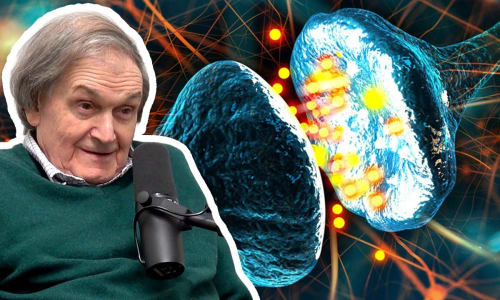See all Lex Fridman transcripts on Youtube

Consciousness is Not a Computation (Roger Penrose) | AI Podcast Clips
22 minutes 59 seconds
🇬🇧 English
Summaries Topics Transcript Chapters Titles Socials Twitter Blog Post Newsletter Quotes Quizzes Ask ChatGPT

Omnivision Solutions Ltd
- Getting Started
- Create Transcript
- Pricing
- FAQs
- Recent Transcriptions
- Roadmap